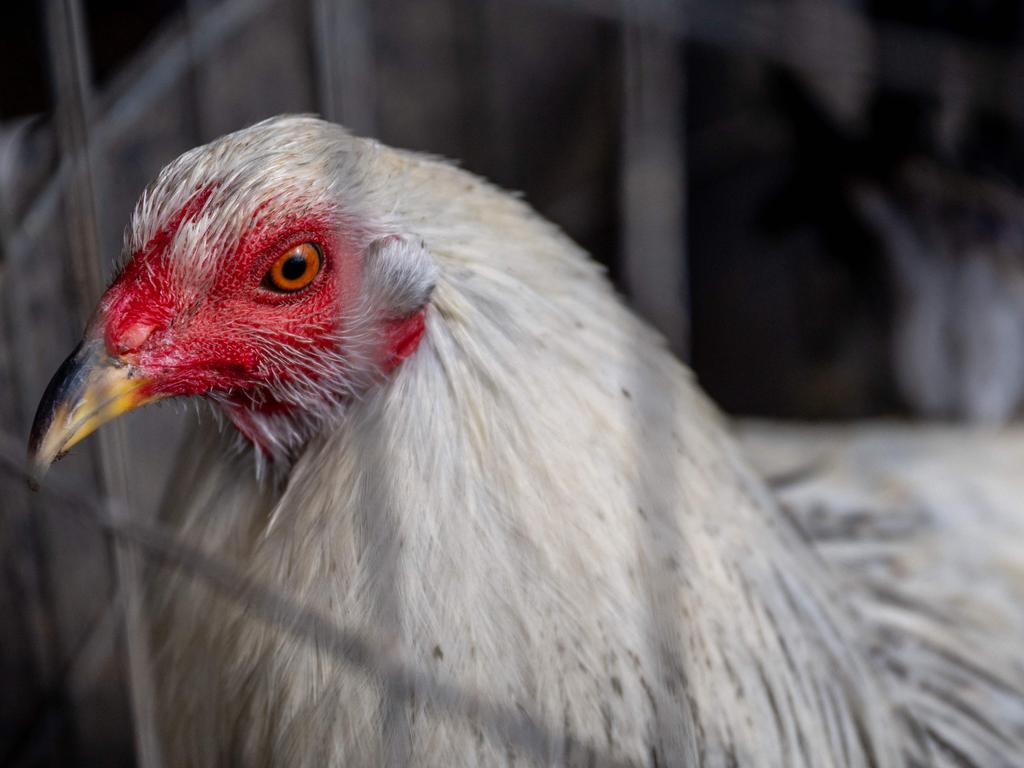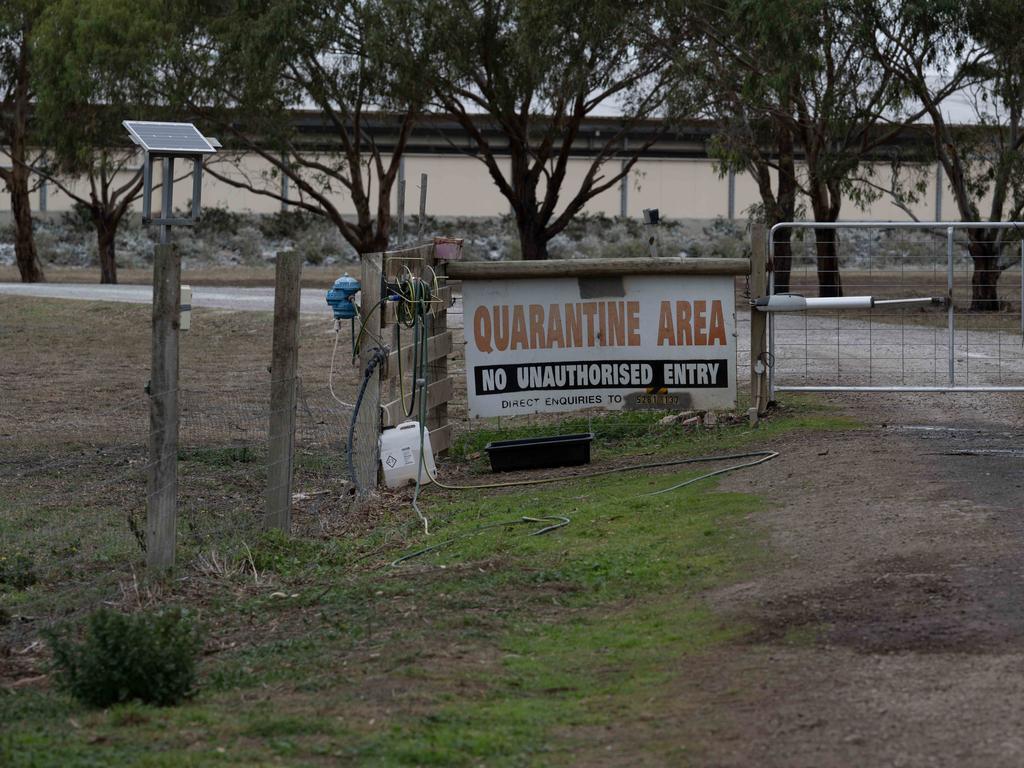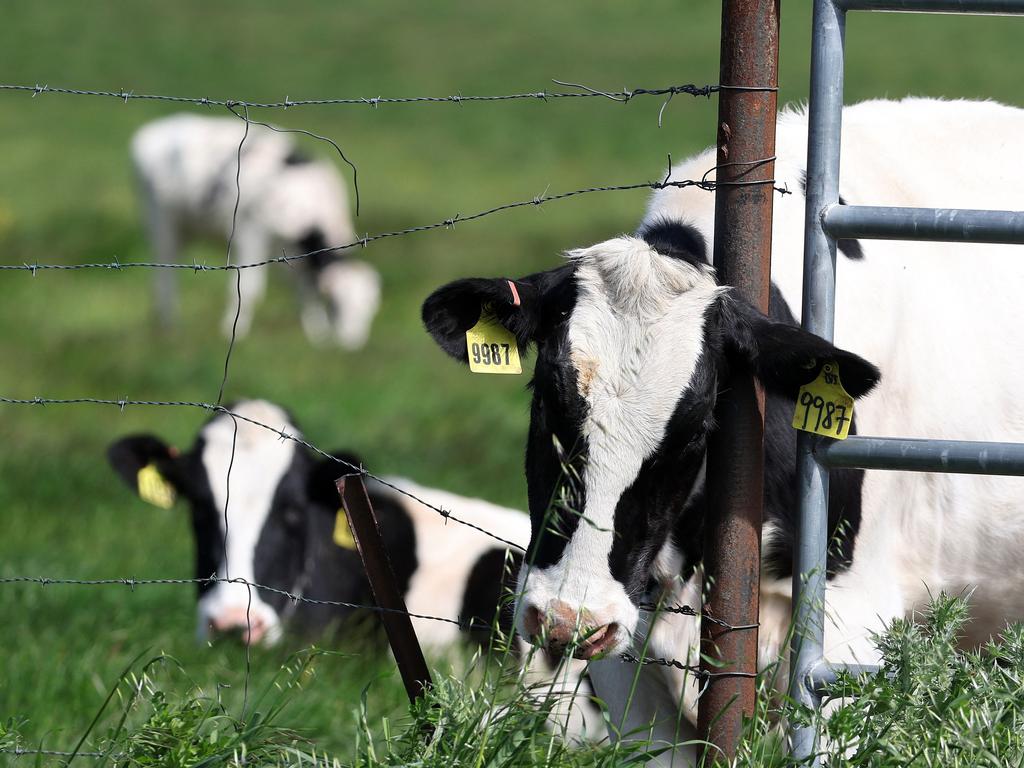Egg buying limits as deadly strain of bird flu spreads
Coles has introduced a nationwide purchase limit on eggs amid shortages linked to a new deadly strain of the bird flu.
Coles has introduced a nationwide purchase limit on eggs amid shortages linked to a new deadly strain of the bird flu.
The supermarket giant has limited customers to two cartons each at all stores except in Western Australia amid chicken culls, which led to fewer eggs being laid.
“Due to a shortage of supply on eggs, we have introduced a temporary limit of two items per customer/transaction,” signs in Coles supermarkets said.
“This will help maintain availability and support as many customers as possible.
“Thank you for your patience, we apologise for any inconvenience caused.”

Shortages have also been witnessed at Aldi and Woolworths stores.
Woolworths and Aldi are not limiting egg sales.

It comes after Victoria’s bird flu outbreak widened to a fifth poultry farm.
Four infected properties near Meredith, between Ballarat and Geelong, have the high pathogenicity H7N3 strain of avian influenza, and an infection of the H7N9 strain has been detected near Terang, in the state’s south-west.
Almost half a million chickens have been euthanised and quarantine zones have been set up, restricting the movement of birds and equipment.

Victoria’s chief veterinary officer Graeme Cooke said the detection was not unexpected.
“We remind bird owners that housing birds, where practical, is an effective method of minimising direct contact with wild birds,” Dr Cooke said.
Australia recorded its first human case of the flu on May 22, when a child caught a severe case of the H5N1 strain virus while in India and reported feeling upon return to Victoria.
The child has since recovered and Victoria Health assured the community that transmission was rare.



The Australian outbreaks unfortunately bring the nation into line with other parts of the world which have been grappling with an unprecedented global outbreak that continues to infect mammals, raising fears it could spread more easily among humans.
The strain claimed its first human life this month.
A 59-year-old man from Mexico was taken to hospital in Mexico City suffering from the H5N2 strain, the World Health Organisation said.
The man, who had several underlying medical conditions, had no history of exposure to poultry or other animals.
But how serious a concern is bird flu for humans? Here is what you need to know.
WHAT IS BIRD FLU?
Influenza A (H5N1) is an infectious disease that spreads widely among wild birds, particularly water fowl, as well as domestic ones such as poultry.
“Bird flu” first emerged in 1996 but since 2020, the number of outbreaks in birds has grown exponentially, alongside an increase in the number of infected mammals.
There are many strains of avian influenza and Victoria’s Department of Health says “most of them don’t infect humans”.
Some subtypes, including H5N1, cause widespread disease and death in poultry, and milder illness in cows and mammals.

HOW BIRD FLU IS SPREAD
Bird flu is spread by coming into contact with the secretions of an infected bird or animal, alive or dead.
The transmission from birds or animals to humans is considered by health authorities to be rare, however it does happen.
The US Department of Agriculture said: “It is important to remember that thus far, we have not found changes to the virus that would make it more transmissible to humans and between people.”
It cannot be contracted by eating fully cooked eggs or chicken.
However, high amounts of the virus were found in US raw cow’s milk recently.
Virus fragments have been found in pasteurised milk, but US health authorities say the milk doesn’t contain the live virus.
There is no evidence of human-to-human transmission at present but health officials fear that if the virus were to eventually spread widely it could mutate into a form that could pass between humans.
HOW TO AVOID CONTRACTING BIRD FLU
Avoid direct contact with wild birds and observe them only from a distance, if possible.
Don’t touch wild or domestic birds that are ill. Don’t pick up a dead bird, its feathers, or nest.
Avoid exposure to infected live or dead animals and call authorities if you observe a wild or farm animal that appears to be sick.
Avoid poultry farms and live bird “wet” markets.
Wash hands thoroughly after handling birds and uncooked poultry products such as chicken meat or eggs.
Ensure that poultry or poultry products are cooked thoroughly before eating.
Avoid unprotected direct physical contact or close exposure with cows and materials potentially infected or confirmed to be infected with H5N1 virus.
Don’t eat or drink raw milk or products made with raw milk. Choose pasteurised milk.
Observe these precautions when travelling to other countries.
It is recommended to get a seasonal flu vaccine, which can reduce the risk of getting sick with human influenza viruses and thus the risk for seasonal and bird flu co-infection.

SYMPTOMS OF BIRD FLU IN HUMANS
In humans, the symptoms of H5N1 infection may include fever, coughing, headaches, aching muscles and respiratory symptoms, the Department of Health said.
Infection may progress quickly to severe respiratory illness and neurological changes.
America’s Centers For Disease Control and Prevention (CDC) reported signs and symptoms of bird flu ranging from no symptoms or mild illness, to severe (such as pneumonia requiring hospitalisation) and included fever (temperature of 37.8ºC or greater).
Less common signs and symptoms include diarrhoea, nausea, vomiting, or seizures.
THE TREATMENT FOR BIRD FLU
Available data on avian influenza viruses spreading worldwide suggest that bird flu virus infections can be treated with current flu antiviral drugs.
Antiviral treatment works best when treatment is started early after symptoms begin.
WHERE BIRD FLU OUTBREAKS ARE NOW
The most serious recent outbreak of bird flu is in the United States.
Almost 60 million birds have been infected in the worst outbreak on record in the US this year.
The virus has now spread to livestock, and a second case of bird flu was recently found in a human in the US less than two months after the first one as an outbreak of the disease is currently circulating widely among dairy cows.
According to the International Travel Vaccination Centre, Cambodia, China, Indonesia, Laos, Thailand, and Vietnam are countries that have been identified with outbreaks of bird flu.
IS IT SAFE TO EAT EGGS AND POULTRY?
Yes. According to Food Standards Australia and New Zealand, Avian Influenza does not pose a food safety risk through poultry meat or eggs.
More Coverage
Originally published as Egg buying limits as deadly strain of bird flu spreads
Read related topics:Explainers




